The Colorado River: A High-Level Look at the Water Shortage and Policy Negotiations Today
With federal guidelines set to expire in 2026, policymakers and interest groups are hustling to set a course for the Colorado River’s policy future. Here’s what four UArizona experts had to say about the current state of governance on the river.
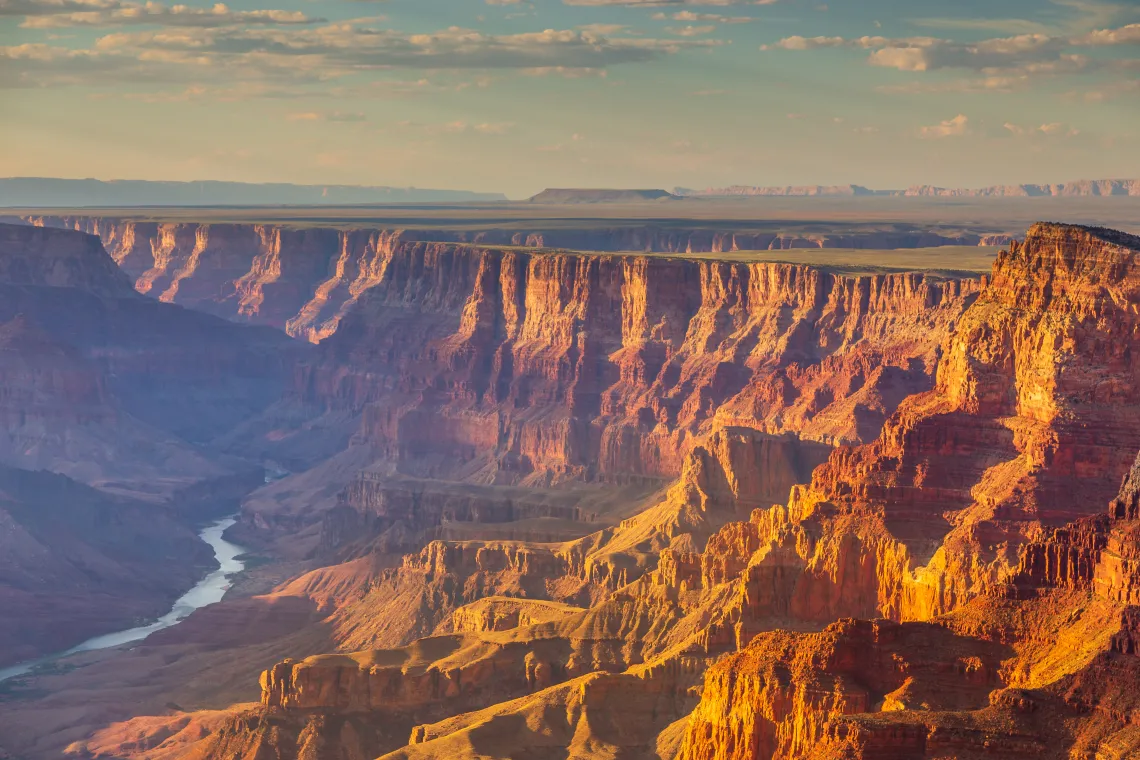
It’s been all over the news for decades – the Colorado River, which supplies roughly 40 million people in the arid southwest with freshwater – is drying up.
Consumers are using more water each year than the river provides, and the enormous reservoirs known as Lakes Mead and Powell have been depleted further than ever before, putting the water and power supplies of millions at risk.
Add to this the fact that nearly all of the federal guidelines in place to protect water supplies coming from the Colorado River expire in 2026 and it’s a recipe for a potential policy disaster on the not-too-distant horizon.
So how did we get here? And what are policymakers doing today to avert an even worse crisis down the line?
We sat down with the following UArizona water and policy experts to talk about the Colorado River crisis, how we got where we are and the future of governance on the river:
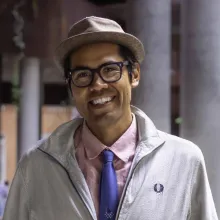
Andrew Curley (Diné/Navajo), Assistant Professor in the School of Geography Development and Environment
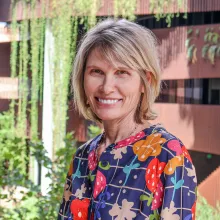
Andrea Gerlak, Director of the Udall Center for Studies in Public Policy
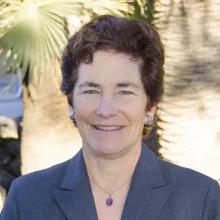
Kathy Jacobs, Director of the Center for Climate Adaptation Science and Solutions
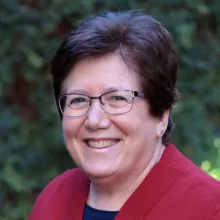
Sharon Megdal, Director of the Water Resources Research Center
Here's what they had to say:
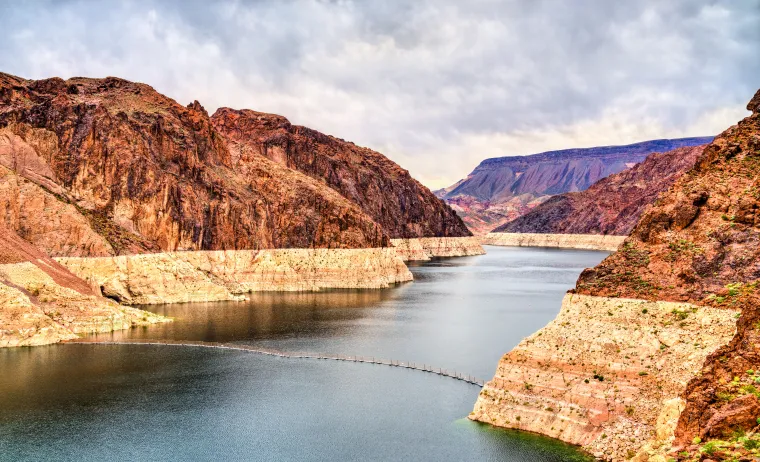
Anyone who follows the news knows that there is a shortage of water in the Colorado River. What does this mean and how did we find ourselves in the current crisis?
JACOBS: The Colorado River situation has been evolving for a very long time. The 1922 Colorado River Compact was the first time that the basin states divided up the water supplies. And at that time, there was an estimate about the volume of water that could be divided; that estimate far exceeded the average flows over the last century.
And, so, from the very beginning, there was an expectation that more water would be in the river than actually has been… So that's the underlying problem.
A second problem is that the allocations to the lower basin states were distributed to users without considering evaporation. When you create reservoirs, they end up losing water to evaporation and that part wasn't included in the calculations either.
And a third significant component, which is becoming more significant every day, is that climate change has been increasing the amount of water lost to evaporation before it even reaches the river... So, even though the precipitation has been constant or relatively constant, there's been a dramatic decline in runoff.
You add to all of that the fact that Tribal nations were not actually part of the original allocation scheme, and that many water rights are not yet finalized, and you see there's a very substantial problem with the water supply picture in the river. And that's without even acknowledging the fact that the environment also needs water to survive.
From the very beginning, there was an expectation that more water would be in the river than actually has been… So that's the underlying problem.
-Kathy Jacobs
MEGDAL: Just to offer some context in addition to what Kathy (Jacobs) provided, yes, the river is overallocated. We have, on this system, the two largest storage reservoirs in the United States when full. And so, this is a system that, when it was built, was thought to have a good deal of storage.
And, even though the river was overallocated, we had some wet periods in the 1980s and ‘90s such that we had this storage built up. But, since 2000, to Kathy's point, the flows on the river are below what they've been, and they're looking worse as we look forward.
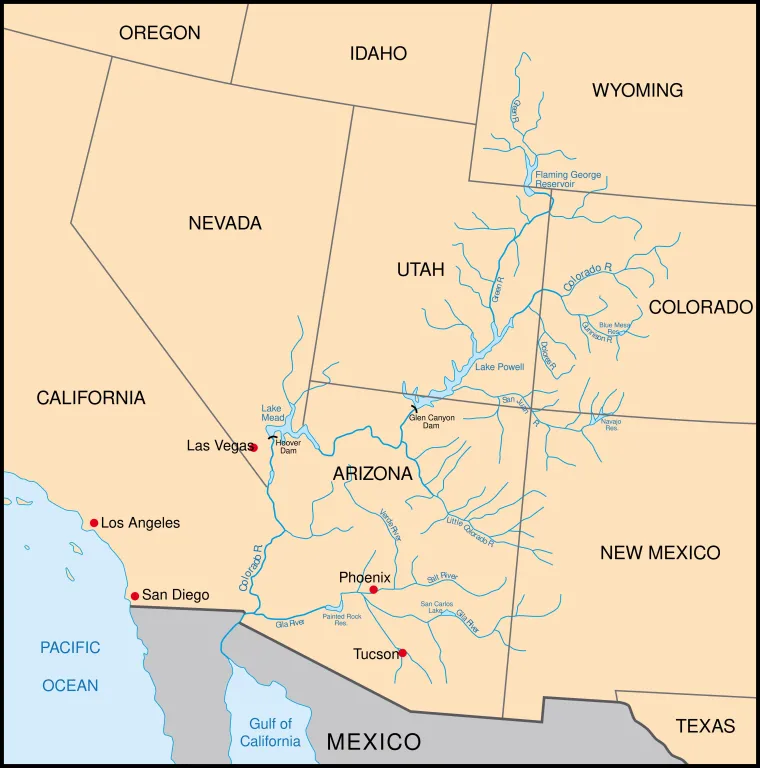
How have Colorado River water resources been distributed historically and what does the current state of governance look like?
MEGDAL: We have an over allocated river that's governed more or less by what's called the “Law of the River,” and the Law of the River is a whole collection of things… it's the (1922) Compact, it's court decisions, it's federal legislation… so many things…
And so, yes, it is a very complicated system. We have the upper division states: Wyoming, Utah, Colorado and New Mexico. And then we have the lower basin states: Arizona, Nevada and California, with Arizona having a bit of its territory – actually, a portion of the Navajo Nation lands – that are in the upper basin.
In the lower basin, water was allocated to the states based on a fixed amount, whereas in the upper basin it's more a percentage of water availability…
And you have, within the system, seniority of rights so that some of the irrigation districts that were the first there in time, not counting Indigenous Peoples who were overlooked, as pointed out by Kathy (Jacobs), already. And nobody really wants to give up any of that water.
And so, one of the things that we did and we're still working to do through all these governance arrangements is figure out how to kind of prop up this system that's stressed.
It's stressed because of low flows, it's stress because of overallocation. We’ve had all kinds of agreements developed to avoid a wholesale change to the Law of the River because that would be opposed by many people. That would end up in the courts…
And so, we’ve had all kinds of agreements to basically forestall or avoid anybody really talking about a change to the underlying Law of the River. We're trying to do all these tweaks and that's part of the current negotiations and process.
GERLAK: Since they signed the compact in the 1920s, there has been this kind of problem-solving mentality in the basin. Issues with Mexico arose, so policymakers adopted a new agreement and then they did again as new issues arose with salinity, endangered species, and the list goes on.
These issues are addressed on a case-by-case basis, but certainly in the last decade-plus – 15 years or so – there's been a much more concerted effort to address shortage. We can see the series of agreements over the last decade and a half about trying to figure out how to basically reduce usage of water from the river.
All of us on the research side of this conversation have looked at those issues in different ways and tried to understand how stakeholders can be engaged better, how science can come to bear, how we can learn from the moves that governance has made or actors have made to improve things as we go forward. And we're kind of in the middle of a process right now.
As (Navajo) people who have been in the region before anybody was here, we're the last to get a claim to those waters… We’re the ones that are going to be asked to give up the most when it comes to water use and water needs.
-Andrew Curley
CURLEY: From my perspective… particularly in my Tribe, Navajo Nation, and our challenges [related to] water access… I like to think about the different legal political positions along this allocation of water called the Colorado River.
Thinking about where Tribal nations fit in that, especially the Navajo Nation, we, as the Diné People, as Navajo People, haven't benefited from any of these things. Infrastructure, law, policy, governance — all of this stuff has been not inclusive or excluding us. First excluding, then not including, and they're slightly different things but the effect is the same. And so, from our perspective, these are problems created by colonial imaginations.
Right now, we talk about it as if we have this interest of sustainability in mind, and there's this implied sense that we want to come to some sort of balance and I think that's true for people today in the 21st century.
But if we go back to the 20th century, if we go back to the language around the Reclamation Act before any of us were born, and we look at how people were talking about the river, it was very colonial. It was very utilitarian. And the science was wedded with the colonial goals to divert, dam, irrigate and reclaim lands for monoculture agriculture, for export-oriented agriculture and, more or less – more than less – that system still remains.
We just had that report that said 80 percent of human use of the water is going towards agriculture. The whole thing was set up for agriculture. So, it's not a surprise that irrigation, which was part of the whole premise of diverting and damming the river, is still the main driver of human consumption. And the sustainability of that is obviously something that is not viable.
And that's where the conversation is right now: Who reduces what? To what degree can Tribal actors get in on whatever water is left over? And that's really where we are, as people who have been in the region before anybody was here. We're the last to get a claim to those waters… We’re the ones that are going to be asked to give up the most when it comes to water use and water needs.
And I think there's a more fundamental question here, too, beyond just Tribal water interests: Are we even solving problems here?
There’s always been a crisis narrative of not enough water. So, this is not a new problem...
In the way we understand the river, we homogenize it, we use colonial terminologies to understand it. And, ultimately, how things get reproduced is when we assume the ideas from the past and use them for the present. So, we reproduce the colonial divisions and the colonial ways of thinking again and again when we're making piecemeal solutions to the problem, which is exactly what they were doing in the past.
So, what is the solution here? It's not necessarily policy. It's not necessarily science. It's about lifestyle and it's about how you relate with the world around you. And, until you start teaching people that, I think we're going to keep having the same problem generations forward.
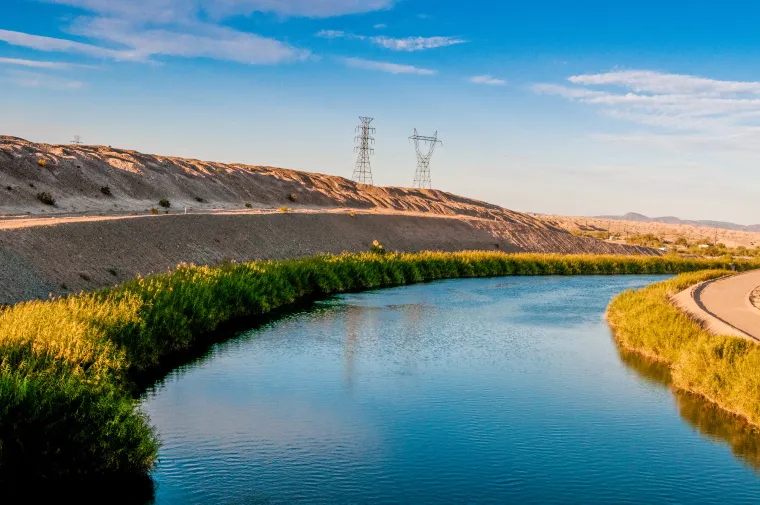
Is it possible to find long-term solutions for the Colorado River crisis that appease all interested parties with our current governance structure?
JACOBS: I completely agree with Andrew (Curley) that the way we have looked at managing this river is not focused on long-term resilience of the region. It's not about sustainable ecosystems, sustainable communities, long-term flexibility of the water supply to address the priorities even of people, let alone of nature and the ecosystems.
This is not atypical of the way humans behave when they're dealing with resources. It's a tragedy of the commons situation. We've done well from the perspective of certain parties who continue to benefit from this river and really maximize the economic opportunity for certain groups. And, from that perspective, it's contributed hugely to the development of the southwest.
But you could also view it as a travesty from many other perspectives, and it would be great to have the opportunity to think more broadly about solutions.
GERLAK: These are really big issues we are facing. But part of the reason why we are in this pattern is because of the governance that we set up. There is a lot happening behind closed doors in these negotiations today and I think that fragmentation just kind of feeds itself.
We really are in this environment characterized by fragmentation and isolation and it’s not always terribly transparent. And then there's not a lot of, or enough, communication or learning across programs. And we certainly aren’t thinking critically about equity. And so, there are some challenges for us, but everything we know about environmental history in the U.S. is about how crises have helped to bring about a lot of important reform.
I think there have been a lot of good researchers working on these issues and thinking about them in dialogue with communities. And, if those voices can be part of the conversation long enough and loudly enough, maybe there's an opportunity here with some new things happening in a post 2026 environment to have some positive impact.
Everything we know about environmental history in the U.S. is about how crises have helped to bring about a lot of important reform.
-Andrea Gerlak
MEGDAL: I'd like to add a couple comments here. Number one is I do see a tremendous focus on solutions. There's just difference of opinion of what is a good solution or not, or an acceptable solution. I do think, unfortunately, it takes crisis to bring about some changes in action. I'd also note that, the situation is constantly changing…
So, I think there's some degree of people being overwhelmed and just trying their best… But what is the best differs by whom you speak with.
And I think that there's also a lack of knowledge… among the consumers of the water, the people who are influencing the decisionmakers.
But again, if you look at some of the people, what they talk about, it's that we humans kind of tamed a river. They thought that was a good thing at the time. And now we're realizing that maybe we overdid it... But it goes to this point of there being different views of how things are, sometimes due to lack of knowledge.
I'm an economist by training, and one of the things we learned very early on in economics is, if you could rearrange things well enough, you can find solutions where those who gain can compensate those who lose and everybody can potentially be better off. But that isn't what happens in the real world. We're not starting with a blank piece of paper of how we're going to divvy up the water and the river. There are going to be losers.
There are going to be people who assume burden, and people who have been assuming burden over time, that maybe were not consulted and able to influence things. It just makes it really hard. It's not an excuse, it's just a reality that we're dealing with issues that are very hard issues to grapple with.
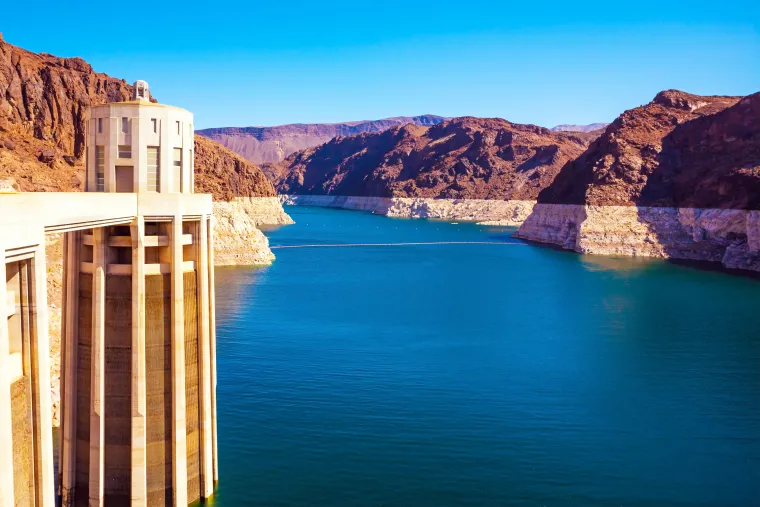
If the governance structure is seen as problematic by so many interest groups, is there any talk of completely restructuring the Law of the River?
JACOBS: Nothing about the way these discussions are structured right now is about a long-term solution to a problem that is getting worse over time. We are now caught in this situation where we're looking for short-term solutions to just get us by until after 2026 because this deadline is looming and because there are a lot of legal processes, including NEPA and other legal frameworks, that have to be met in order to make any changes in the existing system.
So, there is nobody at this time standing up and saying, “Let's have a very broad conversation about the future and how we can do all of this better.” At least, nobody who's in the inside of this conversation is saying this, and they really can't afford to. I mean, they're up against the wall and they don't have an agreement, even with the short-term discussions right now.
We did start having these kinds of broader discussions a few years ago in a project we called Colorado River Conversations and we were making some progress in that arena, but many of the people who are actually doing the negotiating now did not attend.
And we have to recognize that there's an enormous amount of investment in the status quo. And by “investment,” I mean the entire financial system of the southwest is invested in the way the governance system works right now. So, there's huge entropy. There's a lack of interest in change because of all that economic investment.
In general, it's the people who don't have the water rights who have the interest in changing the system. And the people who do have the water rights are the ones who are less likely to want to change and who have huge economic investment.
So, we have a situation where, without really dramatic leadership, it's almost impossible to imagine a significant change in the system. But with a crisis and great leadership, we could do great things.
It's the people who don't have the water rights who have the interest in changing the system. And the people who do have the water rights are the ones who are less likely to want to change and who have huge economic investment.
-Kathy Jacobs
CURLEY: I think it’s important to say that I don't really work on the Colorado River because I think it's already an abstraction that does more damage than it helps us to understand in the environment. I look at the challenges that I see happening in a place that I'm familiar with, which is Navajo Nation, and I’m thinking about, what are the proposed options that we have?
These agreements are very complicated. And it’s weird. It makes water weird in that it puts it in these quantifiable units, which makes it into a commodity in some ways because water here is no different from water there.
When you call it an “acre foot” you're divorcing it already from its environment, from where that water comes from, how it interacts with the land and the species and the other things around it. And so, from my perspective, we (the Navajo People) are being built into this system.
Our future needs are being satisfied through this logic… that has been in place and has proven to be unsustainable…
All this is to say that when I'm looking at the issue from the Navajo Nation… the whole division of the Colorado Basin splits the Navajo Nation in half.
And even technical questions like, “Can we move water from this part to that part of the reservation?”, which is not even something that we agreed to divide in half, it becomes subject to this Law of the River… to this inter-basin transfer issue that is kind of the basis for dividing upper and lower and keeping reservoirs that serve the so-called upper basin and lower basin, which I think is already a problem.
So, we're built into that system, right? We have to work around those laws and those approaches, between the colonial states around us who never have our interests in mind in order to satisfy how they come up with the water system.
I shouldn't speak on behalf of Navajo Nation because there are people who are really happy about some of the proposed settlement systems, but from the perspective of someone who is a member of the Navajo Nation, looking at it and seeing how it's played out historically, it feels really, well, to say the very least, unjust.
Right now, even the proposed solutions aren't going to get us the necessary infrastructure, the necessary household water supply that everybody wants. There are always promises of development… but these things aren't going to be instant solutions for us.
On the other hand, we have been living on this land without all that infrastructure, without that system, without any of that stuff and we still have modern things. We have grocery stores… you can go to Kayenta and get a Subway sandwich if you want just as well as you can get it in Phoenix or Tucson.
So, the system doesn't work for us and we survive. We can live here and we don't have to live without certain kinds of conveniences.
I think we can get rid of the Law of the River. I really think so. I want to get rid of the whole system. Ideally, in my mind, we abolish the whole thing and get rid of the dams and try to come up with an equitable division among people who live here, including people in Tucson, in Phoenix and the nations that are equally beneficial for all the parties involved.
Of course that's a dream. I’ve heard from at least one water lawyer that so much law, so much policy have been built on this whole thing it would be impossible. Even the dams are so looming. If you go over to Glen Canyon Dam and you look at it, it's huge. It's overpowering. It's made of concrete. It jets into the air so high it feels like it's an impossible thing to remove.
So, that's the perception we have. That's this idea we have. I say let's open up that conversation. Get rid of the Law of the River and see who says what about it.
You know, like, I never thought they would consider getting rid of student debt. I know that's a different kind of ask and that we didn't get rid of it, but there are still conversations taking place about reforming the whole system.
There's that cliche that change is impossible until it's inevitable. In some instances and some historical examples, it does play out that way…
But I think we should just start talking about it now. Let's get rid of this system.
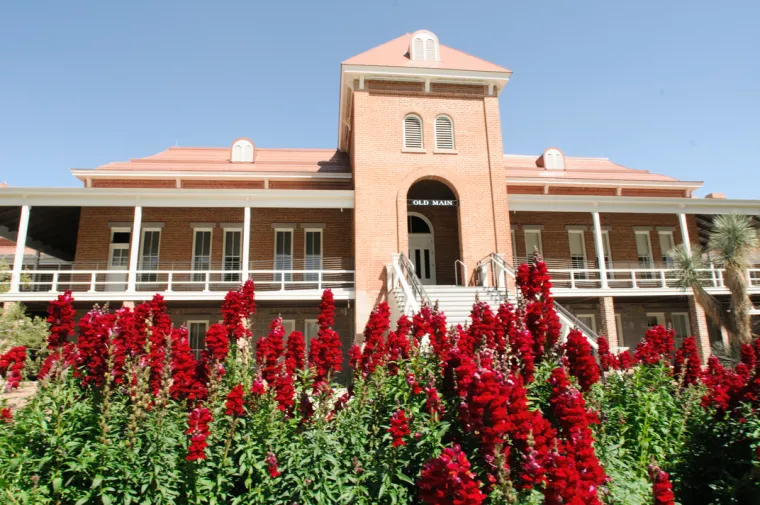
What role do universities and researchers like yourselves play in these conversations?
GERLAK: I think universities and researchers can play a powerful role in this process.
We can help convene. We can facilitate dialog. We can do research to understand what's working. We can help explain and reinterpret history for people who have forgotten it or maybe who never really learned it. We could look to other parts of the world for how people are solving some of these issues. We can call out those equity or justice issues.
I think my colleagues featured here, and UArizona researchers in general, are part of that ethos of thinking about what they do in an applied way and trying to help inform what's happening in the world.
In times like this, that work is even more important.
MEGDAL: We can play a tremendous role as educators, as people who study and who learn and who look to help other people understand. And some of that is in translation, in explaining things to people... There's a tremendous – and I'll use this word explicitly – thirst for knowledge and understanding this complex water picture.
As an economist, you're taught early on that economists may not have a role to play when it comes to normative judgments. That was kind of the way neoclassical economics was taught when I was studying it. We can look at the facts, but we shouldn't say what should be.
But I always kind of gravitated to policy, and I never believed that, because I believe that we as researchers and as sometimes-independent thinkers have the ability to look at options, look at the tradeoffs associated with those options and help people understand the implications of different policy choices.
True, we're not making the policies, but we can help people understand those tradeoffs and implications.
Universities and researchers can play a powerful role in this process.
-Andrea Gerlak
JACOBS: Universities can also serve as neutral conveners. We actually demonstrated that with the Colorado River Conversations, that people are hungry for a safe place for honest conversations, including some people who are actively engaged in some of these negotiations.
We had some pretty high-level people joining us at the University of Arizona from all seven basin states, from many tribes and from Mexico, to talk about the future options available to us, but also to think about how extreme events will affect this system in the future, and what we can do about that.
We've already run into several unanticipated conditions just in the last five years that have dramatically changed the way we look at the river and its capacity to serve us in the future. It's really valuable to think about scenarios of planning into the future, different possible endpoints that we could be aiming towards or different ways of getting to desired endpoints.
I do think universities are trusted as neutral places. We have a good reputation for doing that kind of work.
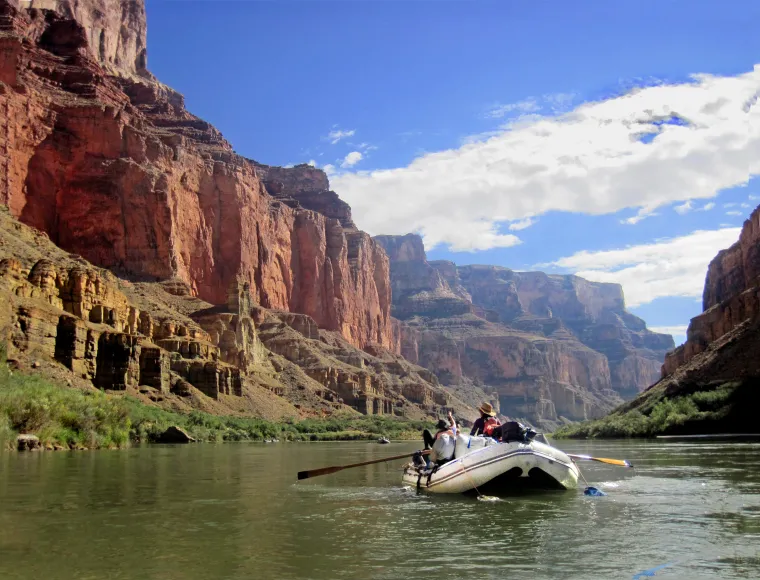
What do you hope to see arise from current negotiations around the expiration of federal Colorado River guidance in 2026?
MEGDAL: The first answer that came to my mind is that we avoid going to court. I hope we can come to agreements that avoid litigation and wasting a lot of time and money in the courts, because the courts don't create water. They're not going to help in that regard.
GERLAK: We have seen some good things in the last few years. We've seen some movement on settlements. We see tribes at the table in some discussions in ways that they haven't been. COVID brought a lot of understanding about access to water in the U.S. broadly, but especially in Indian Country. The relationship between the U.S. and Mexico has gotten a lot better over the last couple of decades. Cities are being really creative and innovative and working together in ways that they really haven't before. So, there's a lot of progress and if we can capitalize on that, if the folks who've been working together in new and unique ways can keep doing so, even if this next solution is short term, it gives us good experience building trust and working together and being creative.
The courts don't create water. They're not going to help in that regard.
-Sharon Megdal
CURLEY: I feel optimistic. Generally, water people are good people, and they get along with each other even if they have differences of opinions on various issues. And so, yeah, I think it's like Andrea (Gerlak) was saying – it feels better than it was in the past.
And going more personally, I feel less certain, if that makes sense. I'm optimistic, but less certain. I was talking to a water lawyer in 2012 and he was like, “This is our best time to settle. The political conditions are ideal right now.”
He was trying to read the political tea leaves, in other words. And, at a certain point, his take was that all of the ways that we analyze water are subservient to the politics around us.
I don't know about that. What if things change? What if the political situation in Arizona changes to where people are less punitive against tribes?
We can’t predict the future. And that was only 12 years ago, so it's hard to know what's going to be happening in ten years. I point to The Clash (lead singer Joe Strummer), when he says, “The future is unwritten,” and I really like that. That’s a good mantra for me.
JACOBS: It isn't reasonable to expect this problem to be solved in a couple of years. We've taken over 100 years to create this problem and it's going to take time to solve it. I think one of the reasons we haven't made more progress is everybody thinks we're going to do it in one fell swoop.
And in fact, what would be better is to establish a foundation for change going forward that isn't frightening; that is actually something we can all embrace. That could give us experience in working towards a collective goal without having to take apart our whole mechanism for managing water or supporting our economy. We can look at a phased approach to a long-term, more sustainable process.
And it’s not reasonable to fix it all right now. That being said, completely focusing on minimizing the impact to each individual state or irrigation district is not a path to that outcome. We need to be working collaboratively.

